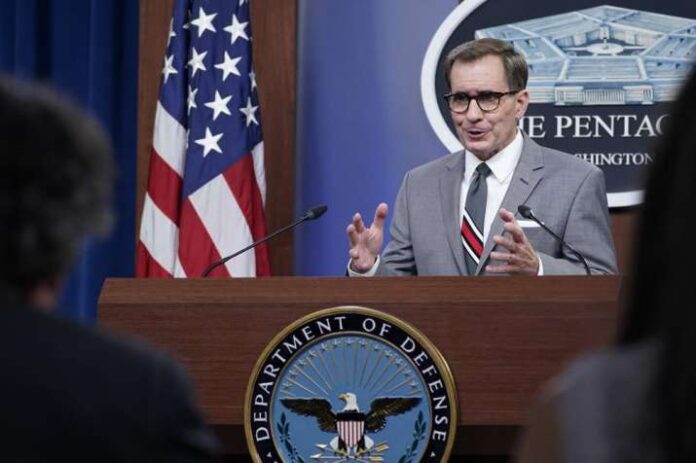| Translate This News In |
|---|
Despite increasing Taliban victories in Afghanistan, the US showed no signs of ramping up attacks on Monday. According to a Pentagon spokesman, the war is now viewed as one for Afghan political and military authorities to win or lose.
At a press conference, Pentagon spokesman John Kirby stated, “When we look back, it’s going to come down to leadership and what leadership was displayed, or not,” by Afghans. “Now it’s up to them to defend their country. It’s their battle.”
The remarks further distanced the US from the battle as Taliban militants seized two more provincial capitals in a sweep across most of Afghanistan on Monday, after capturing significant swaths of terrain in the primarily rural countryside.
Military leaders have stated unequivocally that conditions in Afghanistan are deteriorating, according to US officials. According to them, Afghan special operations forces have been able to stave off the Taliban in major cities such as Kandahar and Lashkar Gah. Regular Army personnel have been overrun in areas where the commandos have not been deployed.
According to authorities, Chairman of the Joint Chiefs of Staff Army Gen. Mark Milley spoke with his senior Middle East commander, Gen. Frank McKenzie, on Monday. However, defence and military authorities have made no new suggestions to step up US activities in Afghanistan’s defence. The United States has been launching up to a dozen of airstrikes every day on the Taliban, and officials say there has been no instruction to ramp up the pace.
According to a senior administration official, senior officials from the White House National Security Council, State Department, and Defense Department were in close contact with U.S. embassy officials in Kabul on Sunday, assessing the broader impact of the Taliban takeover of Kunduz, the largest and most significant in the country.
Despite the Taliban’s quick strategic advantages, the Biden administration remains committed to ending the US war in Afghanistan by the end of the month, according to the senior official.
The officials spoke on the condition of anonymity to discuss ongoing private discussions. Kirby acknowledged that the fight on the ground is “clearly not going in the right direction.” By Monday, with the US three weeks and one day from its deadline to end the 19-year combat mission in Afghanistan, Taliban militias ousted from power by the 2001 U.S. invasion had retaken control of five of the country’s 34 provincial capitals.
After routing the al-Qaida plotters of the 9/11 attacks on the United States in the early years of the war, the United States and its NATO allies stayed on for many years afterward, partly in the hope of fostering a Kabul-based government and military capable of withstanding the Taliban once Western forces withdrew.
President Joe Biden has stated that he will uphold President Donald Trump’s withdrawal agreement with the Taliban. But Biden has made it clear that he, too, is determined to withdraw US forces from their longest war.
Kirby refused to say how many airstrikes US aircraft have carried out in recent days. Given the Taliban’s advances, he declined to say whether the Biden administration would extend the airstrikes past Biden’s August 31 withdrawal deadline.
In the meantime, “we will continue to support them… where and when feasible, with the understanding that it will not always be feasible,′′ Kirby said of Afghan government and military leaders.
After the withdrawal, the Biden administration says it will continue to support the Afghan military financially and logistically, including by sending contractors to help maintain the government’s air force from outside Afghanistan.


















